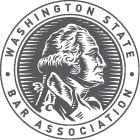Legal Help for People Of Moderate Means
The Moderate Means Program is currently closed as we develop and implement improvements to the program.
In 2019, more than 2 million people in Washington were found to be of moderate income, falling between 200% and 400% of the Federal Poverty Level. Many moderate income clients in need of legal services cannot afford a full-fee attorney and do not qualify for free civil legal aid.
The statewide Moderate Means Program strives to bridge that gap with reduced-fee assistance in legal cases involving family, housing, consumer, and unemployment issues that is scaled to the client’s income. The Moderate Means Program connects moderate-income clients with a family, housing, consumer, or unemployment legal issue with legal professionals willing to represent them at a reduced rate.
The Moderate Means Program does not provide free legal services. This program is not able to handle urgent legal needs as the intake and referral process takes time.
The Moderate Means program is a partnership between the Washington State Bar Association and the law schools of Gonzaga University, Seattle University, and the University of Washington. The WSBA Board of Governors and private funding through the Washington State Bar Foundation support the program.
Please note this program is not able to handle urgent legal needs as the intake and referral process may take some time. The Moderate Means Program cannot guarantee a referral, particularly in some rural communities where attorney resources are limited.
The legal professionals participating in the Moderate Means Program are solely liable for their actions. Neither WSBA nor law schools are responsible for services received.
Am I Eligible?
To be eligible for the Moderate Means Program, you must be facing a family, housing, consumer law, or unemployment benefits issue.
What constitutes a family, consumer, housing law, or unemployment benefits issue?
Family Law — Separation or divorce, guardianship, child custody or visitation, child support, personal safety due to family member, establish the biological father of a child, adoption and juvenile dependency matters
Consumer Law — Debt, problems with a payday lender or debt collector, legal issue involving the purchase, financing or repair of a vehicle, legal issue regarding utilities (water, electricity, garbage), victim of unfair or deceptive sales practice, victim of identity theft, and bankruptcy (Chapters 7 or 13)
Housing Law — Trouble with rental housing or a landlord, eviction, unfair denial of housing and repair issues
Is my annual household income between 200% and 400% of the federal poverty level?
2022 Federal Poverty Levels | ||
Family Size | 200% of Federal Poverty Level | 400% of Federal Poverty Level |
1 | $27,180 | $54,360 |
2 | $36,260 | $73,240 |
3 | $46,060 | $91,120 |
4 | $55,500 | $111,000 |
*Source: U.S. Department of Health and Human Services
How Do I Get Assistance?
The Moderate Means Program is currently closed as we develop and implement improvements to the program.
If your household falls between 200–400% of Federal Poverty Levels, and you are facing a family, consumer, housing, or unemployment legal issue, you may be eligible for assistance. Applying online is the fastest way to process your request for assistance.
After you have applied, a law student under the supervision of an attorney will call you to get information about your legal issue and help make a referral. The average call back time varies based on the law schools' academic calendar; time periods between semesters and quarters, and during holiday and summer breaks may increase call back time. Most can expect a call back within five business days.
Next Steps
Once you speak with a law student and determined eligible for the program, the law student will try to place your case with an attorney or a Limited Legal Licensed Technician (LLLT). If a legal professional is available, the law student will provide you with their name and contact information. You are responsible for contacting the legal professional. WSBA and the law schools will not schedule appointments between you and the legal professional.
How Much Will I Be Charged?
There is no set amount for a participating legal professional to charge. Legal professionals in this program have agreed to reduce their fees on a sliding scale. Some may request an advanced deposit. We encourage all clients to work with the legal professionals to ensure both parties agree on charges before accepting their services. Written fee agreements are highly encouraged.
What If I Don't Qualify?
If you do not have an issue that fits within the areas listed above or your income is below 200% of the FPL, review our Find Legal Help page for additional resources.






